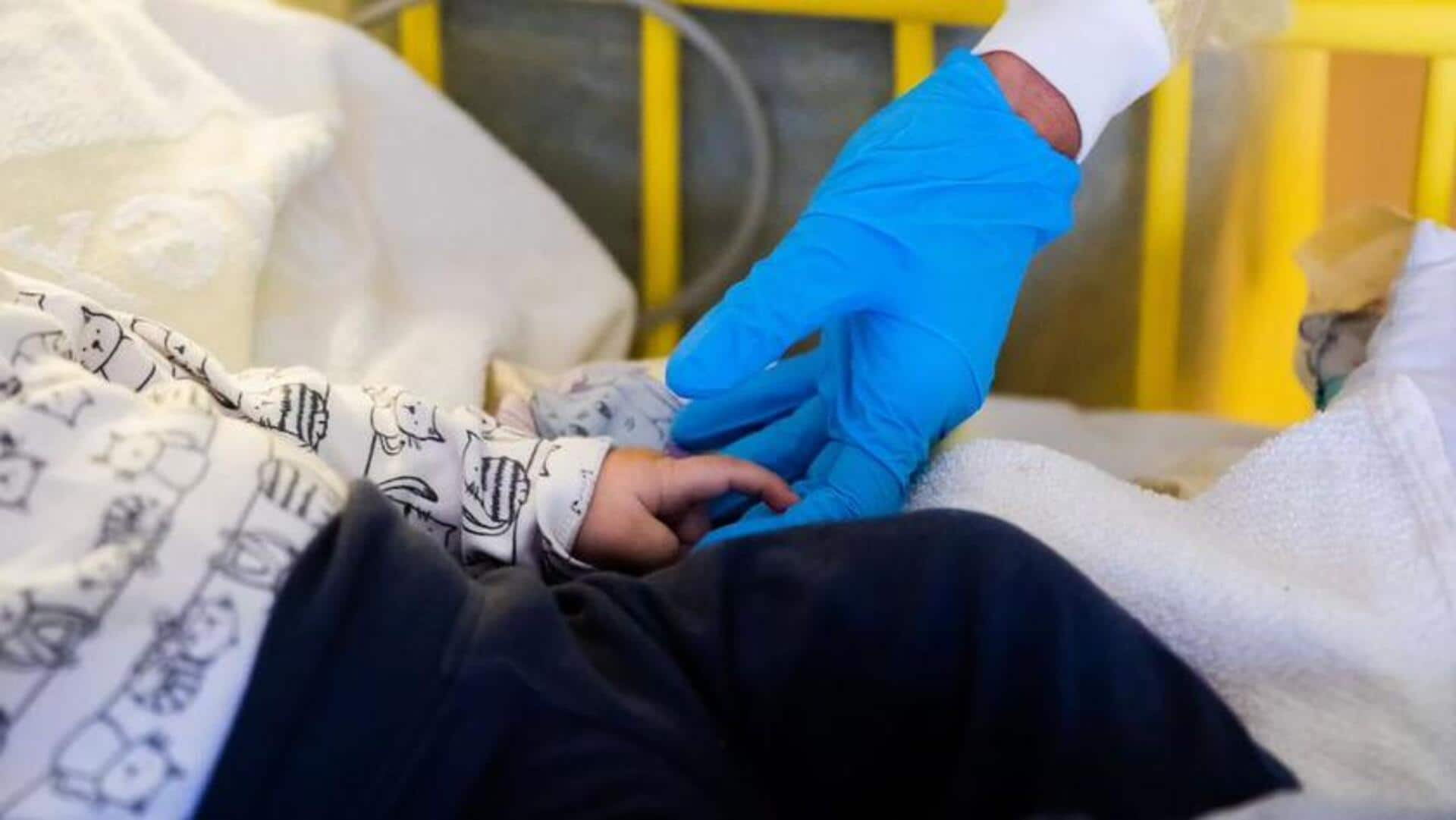
Diphtheria kills 7 children in Rajasthan: Know symptoms, cause, cure
What's the story
A diphtheria outbreak has killed seven children in Deeg district, Rajasthan. The disease is a bacterial infection caused by Corynebacterium diphtheriae and mainly affects the mucous membranes of the throat and nose. It may also affect the skin in some cases. Dr. Tushar Tayal, Consultant, Internal Medicine at CK Birla Hospital, Gurugram, said, "Diphtheria is a highly contagious disease, and prompt treatment is essential to prevent severe complications."
Disease profile
How it spreads
Diphtheria spreads through respiratory droplets from coughs or sneezes and direct contact with contaminated surfaces. Symptoms often include a sore throat, hoarseness, a thick gray coating on the throat or tonsils, swollen lymph nodes, fever, and fatigue. Skin lesions or ulcers may also develop in some cases. "One of the most distinctive signs of diphtheria is the thick gray membrane that forms in the throat," said Dr. Tayal.
Health risks
Untreated diphtheria can lead to severe health complications
If untreated, diphtheria can cause serious complications including myocarditis (inflammation of the heart), neuropathy (nerve damage), and breathing problems due to airway blockage. Symptoms can vary in severity in children and adults. "In children, diphtheria tends to present with more severe symptoms, such as a high fever, difficulty swallowing," said Dr Tayal. Vaccinated adults may have milder symptoms like a sore throat and mild fever.
Medical response
Diphtheria treatment and prevention through vaccination
Diphtheria treatment includes an antitoxin to neutralize the bacterial toxin and antibiotics to eliminate the infection. The diphtheria vaccination, included in the DTaP/Tdap immunizations, is the most effective method. Dr. Tayal stressed that "routine vaccination for children and booster doses for adults are crucial in preventing the spread of diphtheria, as immunity can diminish over time." Early recognition of symptoms and proper vaccination are key to managing and preventing diphtheria effectively.